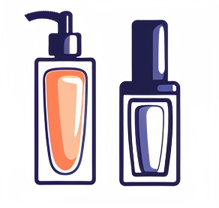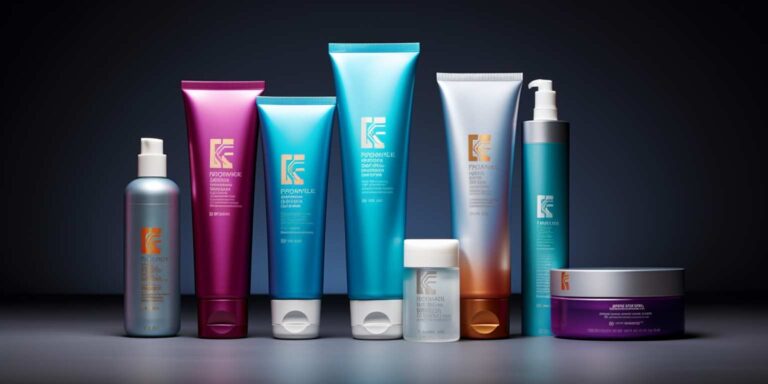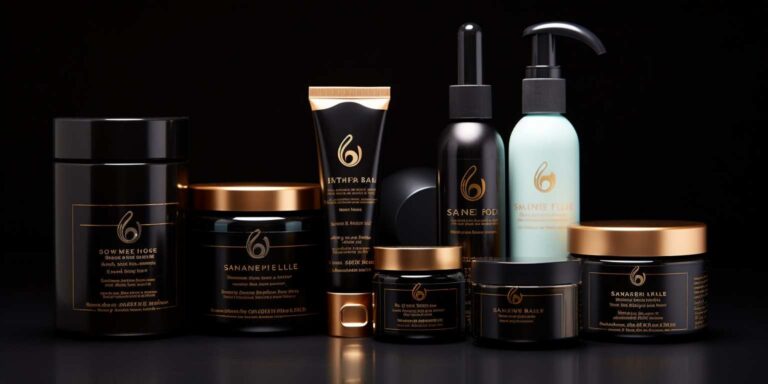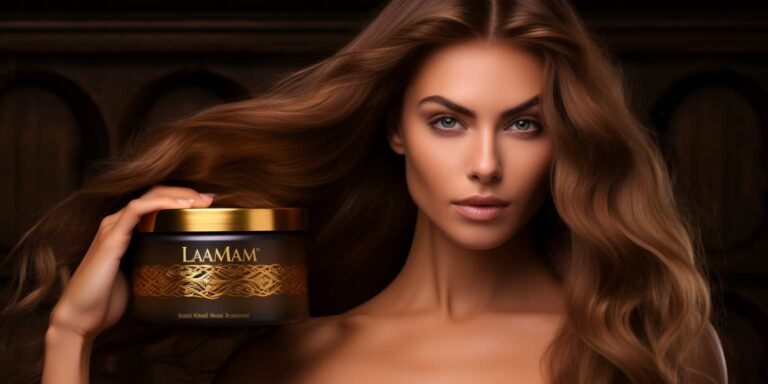The ultimate guide to sulfate free shampoo
What are sulfates?
Sulfates are cleansing agents commonly found in many traditional shampoos. They create that satisfying lather but can also strip away natural oils, leaving your hair dry, brittle, and prone to damage.
Why go sulfate-free?
Switching to a sulfate-free shampoo can be a game-changer for your hair. By eliminating sulfates, you’re gentler on your scalp and strands, reducing the risk of irritation and preserving natural oils.
The benefits of sulfate-free shampoo:
- Gentle cleansing: Sulfate-free formulas clean your hair without stripping away essential moisture, making them ideal for those with sensitive scalps or dry hair.
- Retains natural oils: By keeping your hair’s natural oils intact, sulfate-free shampoos help maintain hydration and prevent dryness.
- Reduces frizz: Without harsh chemicals, your hair is smoother and less prone to frizz and flyaways.
- Color-safe: Sulfate-free shampoos are gentle enough for colored or chemically-treated hair, helping preserve your vibrant locks.
- Environmentally friendly: Many sulfate-free shampoos are also free from parabens and other harmful chemicals, making them a greener choice for you and the planet.
How to choose the right sulfate-free shampoo?
With a myriad of options available, finding the perfect sulfate-free shampoo can seem daunting. Consider your hair type, concerns, and preferences:
| Hair Type | Recommended Shampoo |
|---|---|
| Dry or Damaged | Look for hydrating formulas enriched with argan oil or coconut oil to nourish and repair. |
| Fine or Oily | Opt for lightweight formulas that won’t weigh down your hair, such as those with tea tree oil or citrus extracts for a refreshing cleanse. |
| Curly or Coily | Choose moisturizing shampoos with shea butter or jojoba oil to define curls and combat frizz. |
How to use sulfate-free shampoo?
Follow these simple steps for maximum efficacy:
- Wet your hair thoroughly.
- Apply a small amount of sulfate-free shampoo to your palms and lather.
- Massage into your scalp and hair, focusing on the roots.
- Rinse thoroughly with lukewarm water.
- Follow with conditioner if needed.
Discovering gentle cleansing formula
In the realm of skincare, the quest for the perfect gentle cleansing formula is akin to searching for a holy grail. Countless individuals have struggled to find a balance between effectively cleansing the skin and preserving its delicate balance. Fortunately, recent advancements in dermatological research have led to the discovery of groundbreaking formulas that prioritize both efficacy and gentleness.
One key component of these gentle cleansing formulas is their pH balance. Traditional cleansers often have a high pH, which can strip the skin of its natural oils and disrupt its protective barrier. However, modern formulations have been meticulously crafted to match the skin’s natural pH, ensuring a thorough cleanse without causing irritation or dryness.
Another crucial aspect is the choice of ingredients. Natural extracts such as chamomile, aloe vera, and cucumber are renowned for their soothing properties, making them ideal candidates for gentle cleansers. These ingredients work harmoniously to cleanse the skin while simultaneously calming inflammation and redness.
Furthermore, technological advancements have allowed for the development of innovative cleansing methods. Micellar water, for example, has gained widespread popularity for its ability to attract and remove impurities without the need for harsh rubbing or rinsing. This gentle yet effective approach has revolutionized the way we cleanse our skin.
To illustrate the effectiveness of these gentle cleansing formulas, consider their impact on sensitive skin. Individuals prone to irritation and redness often struggle to find suitable skincare products. However, with the advent of gentle cleansers, they can now enjoy a thorough cleanse without fear of exacerbating their skin condition.
Embracing natural hair care solutions
Natural hair care solutions have gained immense popularity in recent years as people increasingly seek healthier alternatives to traditional hair care products. Natural hair care emphasizes using organic and plant-based ingredients to cleanse, moisturize, and style hair, avoiding harsh chemicals commonly found in commercial products.
Embracing natural hair care solutions means adopting a holistic approach to hair care, considering not only the products applied to the hair but also overall lifestyle factors that can impact hair health. This includes proper nutrition, hydration, and minimizing stress, which all contribute to the vitality of hair.
One of the key benefits of natural hair care is its gentleness on the scalp and hair follicles. Many commercial hair care products contain sulfates, parabens, and other harsh chemicals that can strip the hair of its natural oils and cause irritation. Plant-based ingredients such as coconut oil, shea butter, and aloe vera provide nourishment without causing harm, promoting healthier hair growth.
Natural hair care also promotes sustainability and environmental consciousness. By opting for products that are biodegradable and ethically sourced, individuals can minimize their ecological footprint and support eco-friendly practices in the beauty industry.
When it comes to cleansing the hair, gentle sulfate-free shampoos or co-washing with conditioner are popular choices among advocates of natural hair care. These methods help retain the hair’s natural oils and prevent dryness and breakage.
Deep conditioning treatments using natural oils such as argan oil, jojoba oil, or olive oil are essential for maintaining moisture and improving the overall health of the hair. These oils penetrate the hair shaft, providing hydration and nourishment from within.
| Natural Hair Care Tips: | Benefits: |
|---|---|
| Avoid heat styling tools | Prevents heat damage and breakage |
| Use silk or satin pillowcases | Reduces friction and prevents hair breakage |
| Protective styling | Minimizes manipulation and promotes hair growth |
Furthermore, embracing natural hair care solutions often involves embracing one’s natural hair texture and celebrating diversity in hair types. This shift towards self-acceptance and empowerment encourages individuals to embrace their unique beauty and break free from societal beauty standards.
The benefits of switching to sulfate free
Switching to sulfate-free hair care products has become increasingly popular in recent years, and for good reason. These products offer a myriad of benefits that not only promote healthier hair but also contribute to overall well-being.
One of the primary advantages of sulfate-free products is their gentle nature. Traditional shampoos often contain sulfates, such as sodium lauryl sulfate (SLS) or sodium laureth sulfate (SLES), which are known to strip the hair of its natural oils, leading to dryness and irritation. In contrast, sulfate-free formulas use milder cleansing agents derived from natural sources like coconut or palm oil. This gentler approach effectively cleanses the hair without causing damage or stripping away essential oils, resulting in softer, more manageable locks.
Moreover, sulfate-free products are particularly beneficial for individuals with sensitive skin or those prone to allergies. Sulfates can often trigger scalp irritation, redness, and itching, especially for those with dermatological conditions such as eczema or psoriasis. By eliminating sulfates from your hair care routine, you can minimize the risk of adverse reactions and maintain a healthier scalp environment.
Another noteworthy advantage of sulfate-free products is their compatibility with various hair types, including curly, color-treated, or chemically processed hair. Sulfates can strip away color molecules from dyed hair, causing premature fading and dullness. Additionally, they can disrupt the natural curl pattern of curly or wavy hair, leading to frizz and dryness. Sulfate-free formulas are gentler on delicate strands, preserving hair color vibrancy and enhancing the natural texture.
Furthermore, sulfate-free products offer environmental benefits, as they are typically biodegradable and less harmful to aquatic ecosystems. Traditional sulfates, when washed down the drain, can accumulate in water bodies and contribute to water pollution. By choosing sulfate-free options, consumers can reduce their ecological footprint and support sustainable practices in the beauty industry.
How to choose the right sulfate free shampoo for you
When it comes to choosing the right sulfate-free shampoo, several factors come into play to ensure you find the perfect match for your hair type and needs. Understanding what sulfates are and why they might not be suitable for your hair is the first step in making an informed decision.
Sulfates are cleansing agents found in many shampoos that create lather and help remove dirt and oil from your hair. While effective, sulfates can strip the hair of its natural oils, leading to dryness, frizz, and color fading, especially for those with sensitive or dry hair.
When choosing a sulfate-free shampoo, look for gentle cleansers such as ammonium lauryl sulfate or decyl glucoside, which effectively clean the hair without causing excessive dryness or irritation.
Consider your hair type when selecting a sulfate-free shampoo. For curly or wavy hair, choose a shampoo that is moisturizing and helps define your natural texture. Look for ingredients like coconut oil or shea butter that provide hydration and reduce frizz.
If you have fine or oily hair, opt for a sulfate-free shampoo that is lightweight and won’t weigh down your hair. Ingredients like rice protein or lemongrass can help add volume and balance oil production.
Check the label for other harmful ingredients that may be present in sulfate-free shampoos. Avoid shampoos that contain parabens, phthalates, or artificial fragrances, as these can be harsh on the hair and scalp.
For those with color-treated hair, look for sulfate-free shampoos specifically formulated for color protection. These shampoos help preserve your hair color and prevent fading.
Consider your scalp condition when choosing a sulfate-free shampoo. If you have a sensitive scalp or dandruff, look for shampoos that contain tea tree oil or aloe vera, which have soothing and anti-inflammatory properties.
Making the transition to sulfate free hair care
Transitioning to sulfate-free hair care is a pivotal step in nurturing your locks and maintaining their health and vitality. Sulfates, commonly found in many traditional shampoos, are harsh detergents that strip the hair of its natural oils, leading to dryness, frizz, and potential damage.
Understanding the benefits of sulfate-free products is essential. These gentle cleansers effectively remove dirt and buildup without compromising the hair’s moisture balance. They are particularly beneficial for individuals with dry, damaged, or color-treated hair, as they help preserve color vibrancy and prevent further dehydration.
When embarking on the journey towards sulfate-free hair care, it’s crucial to read product labels diligently. Look for formulations that boast natural ingredients such as coconut oil, shea butter, aloe vera, and argan oil, which provide nourishment and hydration.
One common concern during the transition period is the adjustment phase. As your hair adapts to sulfate-free products, it may initially feel different or appear greasier than usual. This is entirely normal and temporary. Patience is key during this phase, as your scalp recalibrates its oil production.
It’s essential to complement sulfate-free shampoos with appropriate hair care practices. Incorporating a hydrating conditioner into your routine helps replenish moisture and improve manageability. Additionally, consider indulging in weekly deep conditioning treatments to nourish and strengthen your strands.
For individuals with curly or textured hair, sulfate-free products can be particularly transformative. These formulations help define curls, reduce frizz, and enhance natural curl patterns without weighing the hair down.
Environmental consciousness is another compelling reason to make the switch to sulfate-free hair care. Many traditional shampoos contain sulfates that are harmful to aquatic life and ecosystems. By opting for sulfate-free alternatives, you’re making a positive impact on the environment.
Transitioning to sulfate-free hair care is not merely a trend but a lifestyle choice that prioritizes the long-term health and beauty of your hair. With patience, proper care, and the right products, you can embark on a journey towards healthier, happier hair that radiates vitality and shine.
Making the transition to sulfate free hair care
Making the transition to sulfate-free hair care can be a transformative journey for your locks. Say goodbye to harsh chemicals stripping your hair of its natural oils, and hello to healthier, more vibrant strands.
Understanding sulfates:
Sulfates are commonly found in many traditional shampoos and are responsible for creating that satisfying lather. However, they can also strip your hair of its natural oils, leaving it dry, brittle, and prone to damage. Sodium lauryl sulfate (SLS) and sodium laureth sulfate (SLES) are two common types of sulfates used in hair care products.
The benefits of going sulfate-free:
- Gentler cleansing: Sulfate-free shampoos use milder surfactants that cleanse your hair without stripping away its natural oils. This results in hair that feels clean and refreshed without feeling dry or damaged.
- Hydrated locks: Without sulfates to strip away moisture, your hair can better retain its natural hydration, leading to softer, smoother strands.
- Reduced irritation: Sulfates can be harsh on the scalp, causing irritation and sensitivity for some individuals. Switching to sulfate-free products can help alleviate these issues, leaving your scalp feeling more comfortable.
- Color protection: Sulfate-free formulas are often gentler on color-treated hair, helping to preserve your hair color and prevent premature fading.
Transitioning tips:
| Tip | Description |
|---|---|
| Gradual switch: | Transitioning to sulfate-free hair care doesn’t have to be an abrupt change. Start by incorporating sulfate-free products into your routine gradually, alternating them with your regular products until you’ve fully made the switch. |
| Clarifying wash: | Before making the switch, use a clarifying shampoo to remove any buildup from your hair. This will help your sulfate-free products work more effectively. |
| Adjust expectations: | Give your hair some time to adjust to the new products. It may take a few washes for your hair to adapt to the gentler cleansing agents. |
| Experiment: | Not all sulfate-free shampoos are created equal. Don’t be afraid to experiment with different brands and formulas to find the one that works best for your hair type and concerns. |
Sulfate free shampoo for every hair type
Embarking on a journey to find the perfect shampoo can be daunting, especially when faced with an array of choices. One popular choice gaining traction across all hair types is the switch to sulfate-free shampoo. Whether you have luscious curls, poker-straight locks, or something in between, sulfate-free shampoos have proven benefits that cater to a diverse range of hair needs.
Let’s delve into the world of sulfate-free goodness and explore why it’s becoming a go-to option for many. First and foremost, sulfates are detergents commonly found in shampoos, responsible for creating that satisfying lather. However, for some hair types, particularly those prone to dryness, sulfates can be harsh and strip the hair of its natural oils.
For those with curly hair, sulfate-free shampoos offer a game-changing solution. Traditional shampoos can often disrupt the curl pattern and lead to frizz. By opting for a sulfate-free alternative, you’re choosing a gentler cleansing option that keeps those curls intact and well-defined.
Similarly, individuals with color-treated hair can benefit significantly from sulfate-free formulas. Sulfates have been known to accelerate color fading, leaving you with dull and lackluster locks. Switching to a sulfate-free option helps maintain that vibrant hue for a more extended period, ultimately saving you trips to the salon.
But it’s not just about hair type; it’s also about embracing a lifestyle that prioritizes health and sustainability. Sulfate-free shampoos often contain more natural ingredients, making them a preferred choice for those who value environmental consciousness. These formulas are gentle on both your hair and the planet, creating a harmonious balance.
Now, let’s break down some key ingredients commonly found in sulfate-free shampoos and their specific benefits:
| Ingredient | Benefits |
|---|---|
| Argan Oil | Deep hydration and nourishment |
| Aloe Vera | Soothing for the scalp, promotes healthy hair growth |
| Coconut Oil | Strengthens hair, reduces protein loss |
These powerhouse ingredients work together to ensure your hair not only looks great but also feels fantastic. It’s a holistic approach to hair care that goes beyond superficial cleansing.







